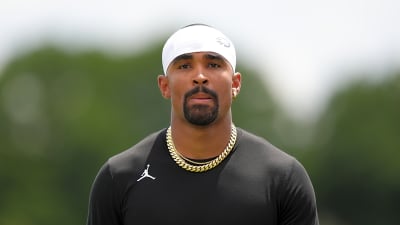
Special teams can make or break a season. For years, the Detroit Red Wings have found out the hard way what happens when they can’t capitalize on the man advantage or keep the puck out of their own net when shorthanded. A team’s power play isn’t just about adding goals; it’s about momentum, confidence, and the ability to punish opponents for mistakes. For Detroit, fixing special teams has been one of the final hurdles in turning the Yzerplan into a playoff reality.
A Lingering Weakness
The Red Wings’ struggles on special teams are no secret. For much of their rebuild, they’ve hovered in the bottom half of the league in both power-play efficiency and penalty-kill percentage. Under Derek Lalonde, the penalty kill cratered, sitting near the bottom of the NHL, and the power play often felt predictable, with slow puck movement, reliance on point shots, and an inability to consistently create dangerous looks from the slot.
Even as the roster improved, the special teams remained a sore spot. It wasn’t just about lacking talent; it was about lacking rhythm and execution. Good teams thrive on special teams. Detroit, too often, simply survived.
The McLellan Factor
Enter Todd McLellan. Hired midway through the 2024–25 season, he brought stability behind the bench and quickly improved the team’s structure at even strength. The big question now is whether he can bring the same impact to special teams. McLellan has a reputation for creativity on the power play, often emphasizing quick puck movement and layered shooting options. With weapons like Alex DeBrincat, Patrick Kane, Lucas Raymond, and Dylan Larkin, there’s no excuse for Detroit to continue sitting in the league’s bottom third.
Personnel Power
On paper, the Red Wings have the tools to build at least a respectable power play. Moritz Seider’s booming shot and ability to quarterback from the blue line. Raymond’s and Kane’s vision and playmaking from the half-walls. DeBrincat’s one-timer from the circle. Larkin’s speed and net-front presence. Even a veteran like James van Riemsdyk can add grit and screens in the crease.
Detroit Red Wings Huddle (Amy Irvin / The Hockey Writers)
The penalty kill also looks more promising after the offseason additions. Mason Appleton was brought in specifically for his PK ability, and Andrew Copp remains one of Detroit’s most trusted two-way forwards. Add Seider and Ben Chiarot on the back end, and suddenly, the Red Wings have more reliable personnel to lean on when down a man.
Why Special Teams Matter More Now
For a rebuilding team, poor special teams performance can be attributed to growing pains. But for a team aiming to make the playoffs, it’s the difference between playing in April or packing up early. The Atlantic Division is brutal. The Tampa Bay Lightning, Florida Panthers, Toronto Maple Leafs, and Boston Bruins all have elite special teams. If the Red Wings want to climb into that tier, the power play and penalty kill can no longer be a weakness.
Imagine the difference if the Red Wings’ power play clicked at 22–24% instead of hovering around 17%. Imagine the penalty kill climbing into the middle of the pack instead of sinking near 30th. Those incremental improvements translate directly into wins, the kind of wins that decide playoff races.
The Verdict
So, can the Red Wings finally fix their special teams? The answer may depend less on talent and more on identity. The pieces are in place: shooters, playmakers, penalty killers, and a coach with a track record of structuring strong units. What they need now is consistency and buy-in.
Suppose McLellan can unlock the creativity of Raymond and DeBrincat. In that case, if Seider takes another step as a power-play quarterback, and if Appleton’s presence solidifies the PK, the Red Wings won’t just be better; they’ll be dangerous.
The Yzerplan has always been about patience and steady growth. But for the Red Wings to finally cross the playoff threshold, the time for excuses on special teams is over. The man advantage must become an actual advantage.
More must-reads:
- Can Penguins defenseman Kris Letang rediscover his game?
- Russell Wilson’s still starting for Giants? Here's why that's a big mistake
- The 'Longest receptions of the 2024 NFL season' quiz
Breaking News
Trending News
Customize Your Newsletter
 +
+
Get the latest news and rumors, customized to your favorite sports and teams. Emailed daily. Always free!








